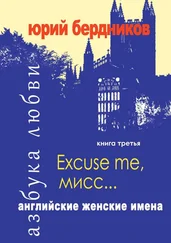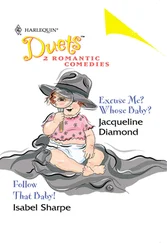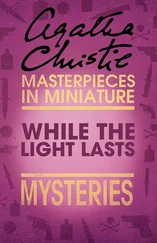This is how his story ends:
When he finally returned home, he found his village in ruins. The streets were deserted except for an old man idly poking at the rubble with a shovel. Guy recognized him as the village schoolteacher. The teacher gladly accepted Guy’s offer to drink from his canteen. After gulping what was left of the water, he stared into the distance with the blank expression of the shell-shocked. It took lengthy coaxing to get him to explain what had happened, but finally Guy learned that the teacher had survived only because he had been enlisted by the Allies to serve as a translator, and so he was far away when the Germans arrived. The villagers took refuge in the cave Guy had discovered, a cave so famous by then that even the Germans knew of its existence. It was easy enough for them to guess where the villagers were hiding, and before retreating north ahead of the Allies, the German soldiers lined the entrance with powerful explosives. The whole side of the mountain collapsed from the force of the blast.
1.
Imagine it is 1442, and we’ve been given access to the workshop of a Venetian artist named Michele Giambono. We find him deep in concentration, dabbing his brush on a canvas to fill in a dragon’s tail drop by drop, as if he had all the time in the world. Unlike the artist, others around him haven’t forgotten the little stipulation in the contract about forfeiting his payment of ninety-five ducats if the altarpiece isn’t delivered by the end of the week. The whole workshop boils with nervous activity. Two assistants hastily press gold leaf on an angel’s halo, while others hammer together the case that will house the altarpiece when it is transported to Fruili. Apprentices try to look busy, measuring powders and stirring little pots of paint.
The sound of an open hand hitting the side of a boy’s head is barely registered. Few people hear the smack, and those who do just shrug and roll their eyes. It is always the same sound, always the same boy. And it is always Zusto, the assistant charged with overseeing the apprentices, who, after hitting the boy, shouts, “Get back to work, you little shit!”
This is only a rough translation of the Venetian dialect. Whatever Zusto actually shouts, Francesco understands perfectly, but he can’t help himself. As Francesco’s nonna likes to say, the boy was born with his head in the clouds. He will never plant his two feet firmly on the earth, no matter how many blows he endures. Dreaming is more than just a habit for him—it is a physical need. He has to do it whether he is awake or asleep.
He picks up where he left off. As he pulls a stick around and around in a little pot filled with a thick red lacquer, his thoughts return to the clouds. He imagines he is floating on a feather mattress high in the sky. He is happy and lazy and has no cares in the world… until he is alerted by a boiling, splashing sound, and the next thing he knows, a dragon rises out of the sea, exhaling a flame that is the same color as the paint. He hears the telltale crackle and smells the smoke from his singed hair. Mamma mia, his head has caught on fire! He dives from the heights into the sea. The dragon follows him, propelled by its huge tail. Francesco is a fast swimmer, but not fast enough, and the dragon gains on him and is about to swallow the boy whole when a giant dolphin arrives just in the nick of time. Francesco grabs the fin and throws a leg across its back. The dolphin leaps in a high arc and plunges with barely a splash, like a horse over a course of barrels. The dragon, falling far behind, roars in fury.
But it isn’t the dragon roaring—it is Zusto again, communicating to Francesco that he is a lazy, rotten, dim-witted, good-for-nothing scatterbrain who has managed to spoil the lacquer, making it unusable.
“You’re done,” says Zusto, seemingly exhausted by his own anger. “You’re not wanted here anymore.” He grabs the boy by the collar and drags him across the room and out the door.
“ Na caxa, ” says Zusto in Venetian. Go home .
Has Zusto forgotten that Francesco doesn’t have a home in Venice and lacks the means to return to his family in Treviso? The apprentices have been staying in the back room of Giambono’s workshop, sharing a mattress. Now that Francesco is no longer an apprentice, he has nowhere to go.
As he staggers away from the building, he manages to plant his boot on the tail of a cat, causing it to erupt in a shriek. Francesco is full of remorse, but the piqued feline refuses to accept his apology and just trots away, twitching its injured tail.
Francesco watches it go, then looks in the opposite direction down the calle . What will he do now that he has lost his apprenticeship? Another boy in his situation would be overcome with despair. Francesco, however, is hopeful by nature and is sure that something good will happen to balance out the bad. He just needs to figure out where to go next.
When you are in Venice and have nowhere to go, you can hide your aimlessness by following someone else. That’s what Francesco does. He follows a workman carrying a wooden bucket full of sludge. When the workman stops to dump the sludge into a canal, Francesco keeps walking, looking for someone else to follow. He spots a girl emerging from a bakery with a basketful of bread. She walks slowly, seemingly reluctant to reach her destination; Francesco walks behind her for a few minutes, until, without warning, the girl whips around and glares at him.
“Why are you following me?” she demands. Her face has a hard, beautiful, sculpted quality. Her eyelashes, wet from the mist, are like pieces of black thread decorated with tiny, glistening diamonds.
“I’m not following you,” says Francesco. He resists stealing a loaf of bread as he brushes past her—he may be hungry, but he’s not a thief.
Turning a corner, he finds himself behind a man pushing a cart loaded with boxes. The man rushes forward with his delivery, calling out “ Aténti! ” to warn people further along the calle that they’d better get out of his way. “ Aténti, aténti! ” The man bumps up and over a stone bridge, along the rio, around a corner. Francesco has to trot to keep up with him. “ Aténti, aténti! ” The deliveryman cuts a channel through the fog, and the boy hurries to keep him in sight. The man turns diagonally across a small campo, plowing between seagulls that are fighting over the remains of a squid, and sends the flock of them into the air with his cart.
He stops in the archway of a palazzo and wipes his forehead with a rag. His clothes are drenched and his trousers hang so heavily that he has to hitch them up and retie the belt before he pushes his cart into the building.
The door remains open, revealing an interior lit by a soft glow. Francesco wonders what is inside. He becomes aware of a dripping sound before he realizes that the fog has intensified to rain. Propelled by his instinctive desire to be warm and dry, he runs through the open doorway.
Alone in the entranceway, he breathes in the waxy odor from the burning candelabra. A few steps take him down a corridor and through another doorway, and he is at the edge of an expansive room full of tables and boxes and men of all ages who chatter in a language he has never heard before. Francesco passes among them unnoticed, overwhelmed by an uncanny sense of having been in the room before, in one of his dreams. Yes, he must have dreamed of a room like this, filled with hooded strangers whose sandals peek out beneath their colorful striped robes. The very foreignness of the scene is familiar to him. For a boy as imaginative as Francesco, he has two lives to remember, one from experience and one from his dreams.
Читать дальше












